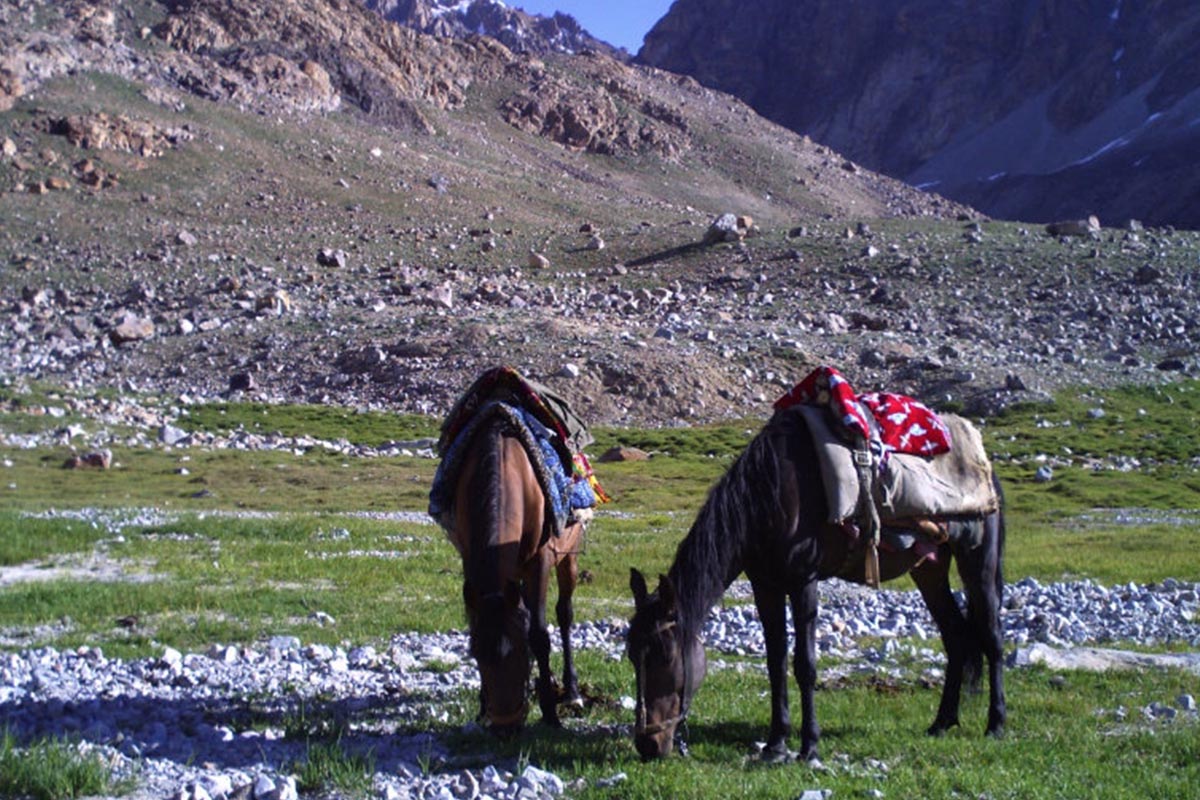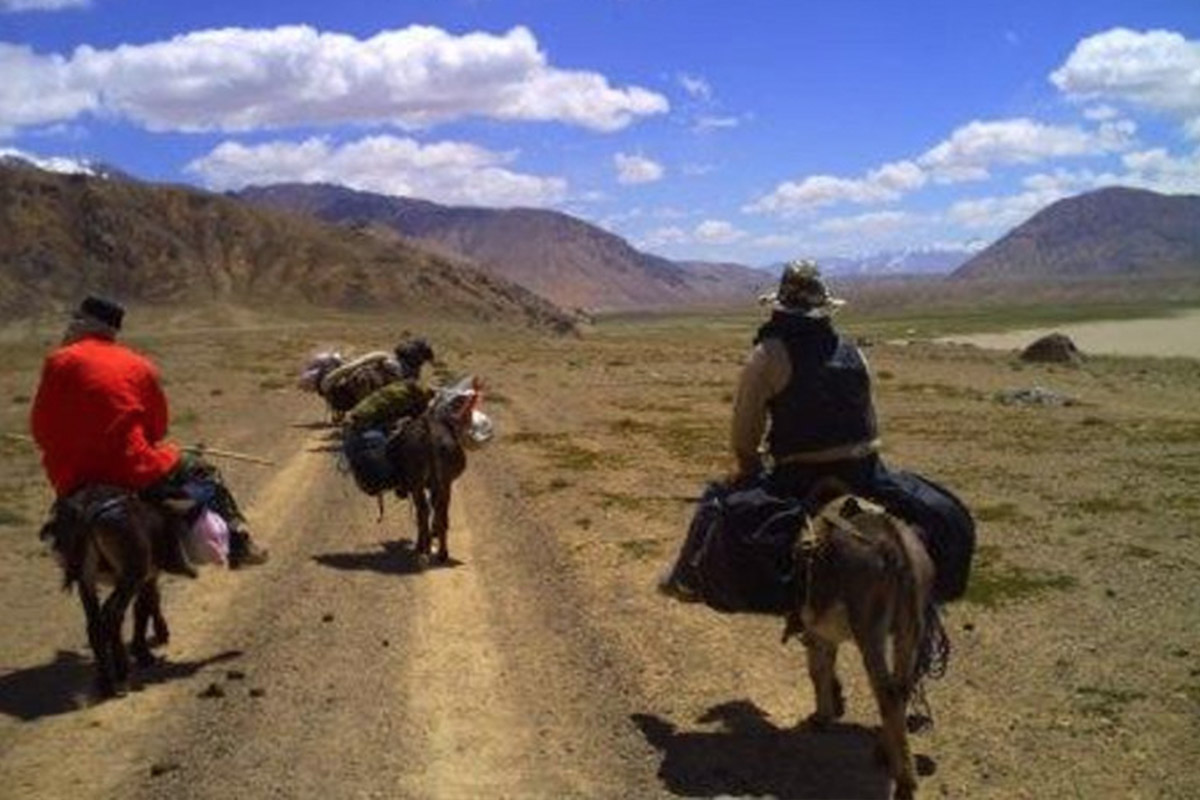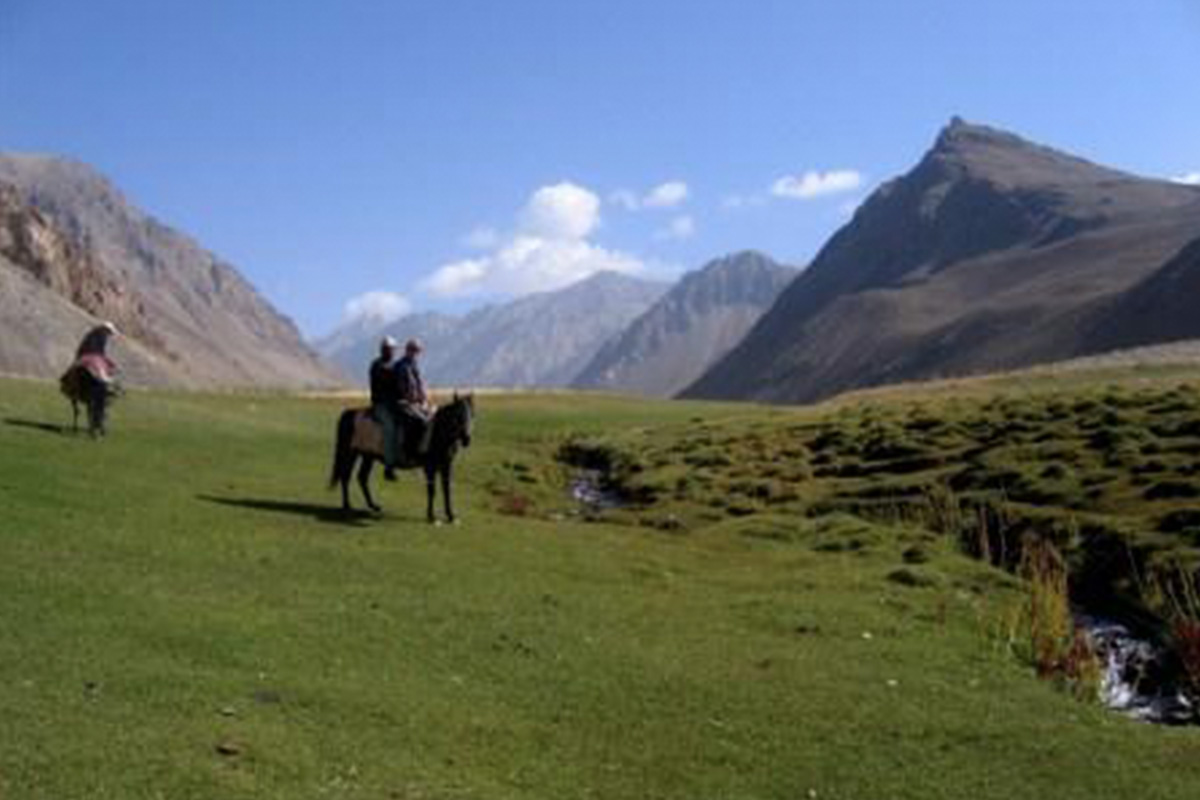Bio-diversity and snow leopard conservation through community-based tourism in the Pamirs
Bio-diversity and snow leopard conservation through community-based tourism in the Pamirs
Project Status: ongoing from 2013
As a member of the Pamirs Eco-Cultural Tourism Association (PECTA, www.pecta.tj), Pamir Horse Adventure is a local tour-operator and community-based tourism organisation which operated in Tajikistan and Kyrgyzstan.
Pamir Horse’s difference with other tour operators in Tajikistan is its keen interest in developing horse riding tours, this traditional but less used means of transportation. The company supports the development of horse breeding in the region through promoting cultural events, traditional horseback sports and horseback tours. Most of the visitors have found horse riding one of the most exciting activities that they have ever participated in, and have truly enjoyed the adventure.
ECOSYSTEM PROTECTION AND SUSTAINABLE TOURISM
The main goal of this project is to protect the ecosystem of the region, with a focus on the mountain ranges around to the south of Yashilkul lake. The specific focus of the project is to protect the endangered snow leopard and its prey, ibex and the Marco Polo sheep, which inhabit the mountains to the north.
The development of community based eco-cultural tourism is the second major objective of the project, which brings money to the local economy and indirectly contributes to the protection of the nature. Sustainable tourism encourages members of the local community to work as tour guides, cooks, porters, drivers and homestay providers. At the same time, educational seminars for the community help explain the importance of the preservation of the ecosystem and raise awareness about the environmental issues.

PRESERVING TRADITIONAL HOSPITALITY WITH INVOLVEMENT IN TOURISM
The local community have has had few job opportunities in this war-stricken post-Soviet country. Pamir Horse Adventure has helped create new jobs every summer for young people as guides and porters, or through providing homestays. When we started our eco-tourism development initiative, there was little awareness about the potential benefit of tourism to the local economy. The community was initially not aware of the economic potential of tourism services and homestays as it conflicted with traditional approaches to hospitality and generosity. Without trying to destroy traditional culture and norms, a system was put in place in order to facilitate the involvement of locals in tourism-related activities, such as a guide of porter. Today, the community looks forward to the tourism season, and work as mountain tour-guides to earn money.
All the people who work for Pamir Horse Adventure are locals. Many of them have participated in training sessions provided by us where they have learnt skills related to professional mountain-guiding, horse-back tour guiding and trek cooking.
Our conservation efforts include the installation of nature guards in the region who patrol the area to look out for poachers.
RAISING AWARENESS ABOUT BIODIVERSITY AMONG LOCAL PEOPLE AND PARTNERS
The project not only strives to protect the ecosystem but also helps to improve the livelihoods of the local community. The results have been very encouraging and the region has gained local and international publicity as a trekking destination in the Pamir Mountains. As well, the awareness about the need to importance of preserving the eco-system have significantly increased in the community.
Our community-based conservation and tourism development is managed by the community itself. Members who have gone through training and have experience are charged with leading crews during expeditions. Every year new members are encouraged to go on treks and and learn basic skills. Many young community members have learned English and now work as tour-guides, and some of them have been funded by the project to study English at the University of Central Asia. Two seminars have also been held in Bachor village, with a horseback tourism specialist from France. Three other workshops have been conducted by conservation specialists who trained local nature guards on how to observe nature systematically and conduct monitoring, such as the surveying of ibex in the mountains.


UNDERSTANDING TOURISM TODAY
Many tourists who visit Tajikistan and the Pamirs mountains are eager to meet with the local people and learn about their life and culture, especially how the mountains have shaped them. Indeed, the unique culture of the region owes much to its geographical isolation.
Most visitors choose to live with local families in Bachor and surrounding villages and sometimes participate in harvesting, milking animals, helping the families with domestic work and cooking which leave them with memorable experiences. It helps them to understand the life of the mountain communities.
In the beginning, it was very difficult for the local communities to understand why tourists came to their mountains. The former Soviet Union did not allow foreigners to visit the border zones, where the Pamirs is situated. Initially locals who were used to going to remote places only to search for missing livestock or hunting for food treated tourists suspiciously and thought they were either spies, or looking for precious stones in these mountains., otherwise what is the point of Over time they have begun to understand that tourists genuinely visit the Pamirs because they admire the mountains, which adds to their own appreciation of their mountain home.
CONTACT
Pamir Horse Adventure
aspamir@gmail.com
pamirhorseadventure.com

